Pharmacy students among the first called to man the state's COVID hotline
Student pharmacists volunteer time, skills to make sure the public is armed with knowledge
Janel Shoun-Smith | 615.966.7078 |
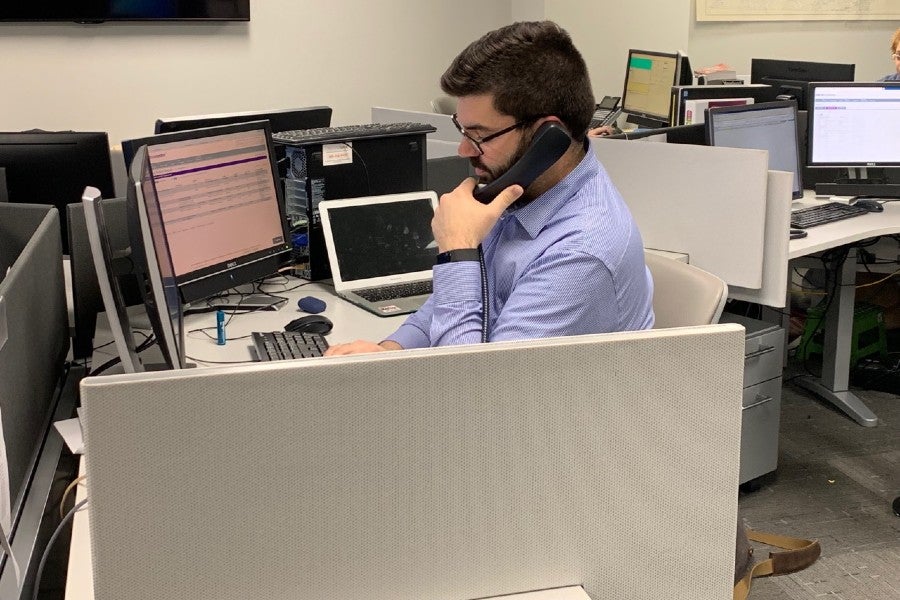
One of the team of Lipscomb student pharmacists who provided information on COVID-19 to the public from the first day the state's information hotline was enacted.
It’s often said that knowledge is power. That is especially true in 2020 when the populations worldwide have been struck by the novel coronavirus.
The Tennessee State Department of Health certainly knew the truth of that statement and quickly set up the Tennessee Coronavirus Public Information Line to inform the public about the new virus and how to get tested. Lipscomb University student pharmacists were among the very first hotline workers, helping Tennesseans to fight the spread of COVID-19 through knowledge of the best practices and health information.
A team of several student pharmacists volunteered or were placed at the Tennessee Coronavirus Public Information Line in March and April.
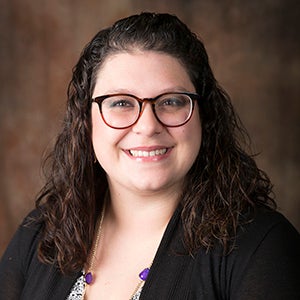
Nena Bowman
The information line was launched by the Tennessee State Department of Health in partnership with the Tennessee Poison Center, where Dr. Nena Bowman (Pharm.D. ’14), a Lipscomb College of Pharmacy graduate and adjunct faculty, is the managing director and serves as a preceptor for Lipscomb student pharmacists.
“We were the first hotline established at (the state’s) request and got it up and running within 24 hours,” said Bowman. “We answer only questions from the public – mostly about where to be tested, if they should try to be tested, the stay at home orders, when to quarantine, what exactly coronavirus is, etc.
“We are fielding calls from the public for the entire state seven days a week, all while maintaining our ability to take emergency poison calls 24/7. We stay super busy and are constantly getting new questions and information to share,” she said.
By the end of April, the coronavirus hotline, staffed by nurses, pharmacy students, medical students and other specialists specifically trained to answer coronavirus questions, had answered more than 13,000 incoming calls over seven weeks, Bowman said.
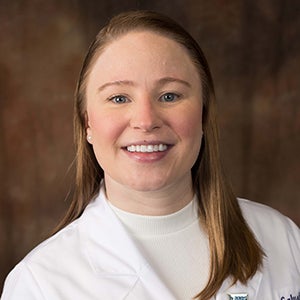
Lindsey Galusha
Lindsey Galusha, a third-year pharmacy student who is an intern at the poison control center, was there on the day the hotline first started up. She transitioned from providing toxicology information on medications and substances to providing information on COVID-19 symptoms, masks and potential testing in the span of a day.
“In the beginning it was a huge influx of callers who were really scared,” she said. “The primary thing was comforting people. You see so much info on the news, but people want information on their particular situation. So they were happy to get someone on the phone to talk about their specific situation.”
Over time, the queries changed from inquiries about masks to inquiries about testing sites and interpreting the stay-at-home orders around the state (i.e. should we hold an Easter gathering, can we hold my daughter’s wedding), said Galusha. Often people in rural counties just want to know the number of confirmed cases in their county of residence, she said.
“In the first two weeks, there were calls all the time. You never hung up the phone and then needed to wait for a new call,” Galusha said. Since then, other state agencies have started taking the calls so the call volume has reduced for the poison control center.
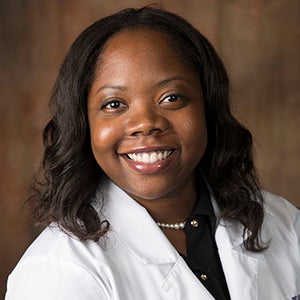
Chelsea Williams
The information on COVID-19 available for the hotline workers changed every day for a while, said Chelsea Williams (’20), who interned at the center for two years and hopes to work in toxicology or community pharmacy.
“We would come in every day and see what had changed. We helped each other as a team,” said Williams. “We created packets, so new volunteers could get up to date. We texted each other in group messages to say, ‘Hey, I’m noticing this trend. We’re getting these types of calls, so look into getting that kind of information.”
Callers asked questions on proper hygiene, workplace safety issues, symptoms of COVD-19 or sometimes other ailments, school closings or case counts in their area or when to self-quarantine, said the interns. Hotline workers are not allowed to diagnose conditions over the phone, but plenty of people called in with that goal in mind, said Galusha. Depending on the severity of the situation, they were referred to their primary care physician or to 911.
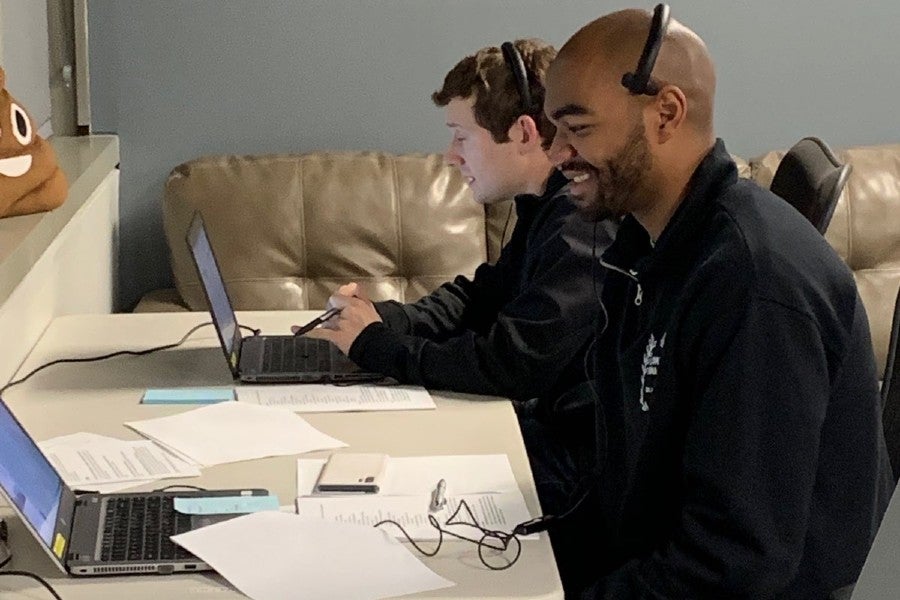
By the end of April, the coronavirus hotline, staffed in part by pharmacy students trained to answer coronavirus questions, had answered more than 13,000 incoming calls over seven weeks.
Galusha says the communications skills she is practicing on the public health hotline are the same skills she will need to expertly employ as a future pharmacist.
“You get to listen more closely to what people are saying, and everything else that would normally be involved with a patient in-person falls away,” she said of the hotline experience. “You don’t get distracted. You just have to listen. So you can really hone in on what they are asking for.”
As a pharmacist it is important to get “to the root of peoples’ problems and to help them understand how to go forward, whether that is COVID-19or a medication double-dose,” said Williams. "You have to communicate effectively and have empathy to ensure they receive the correct recommendations and assistance.”